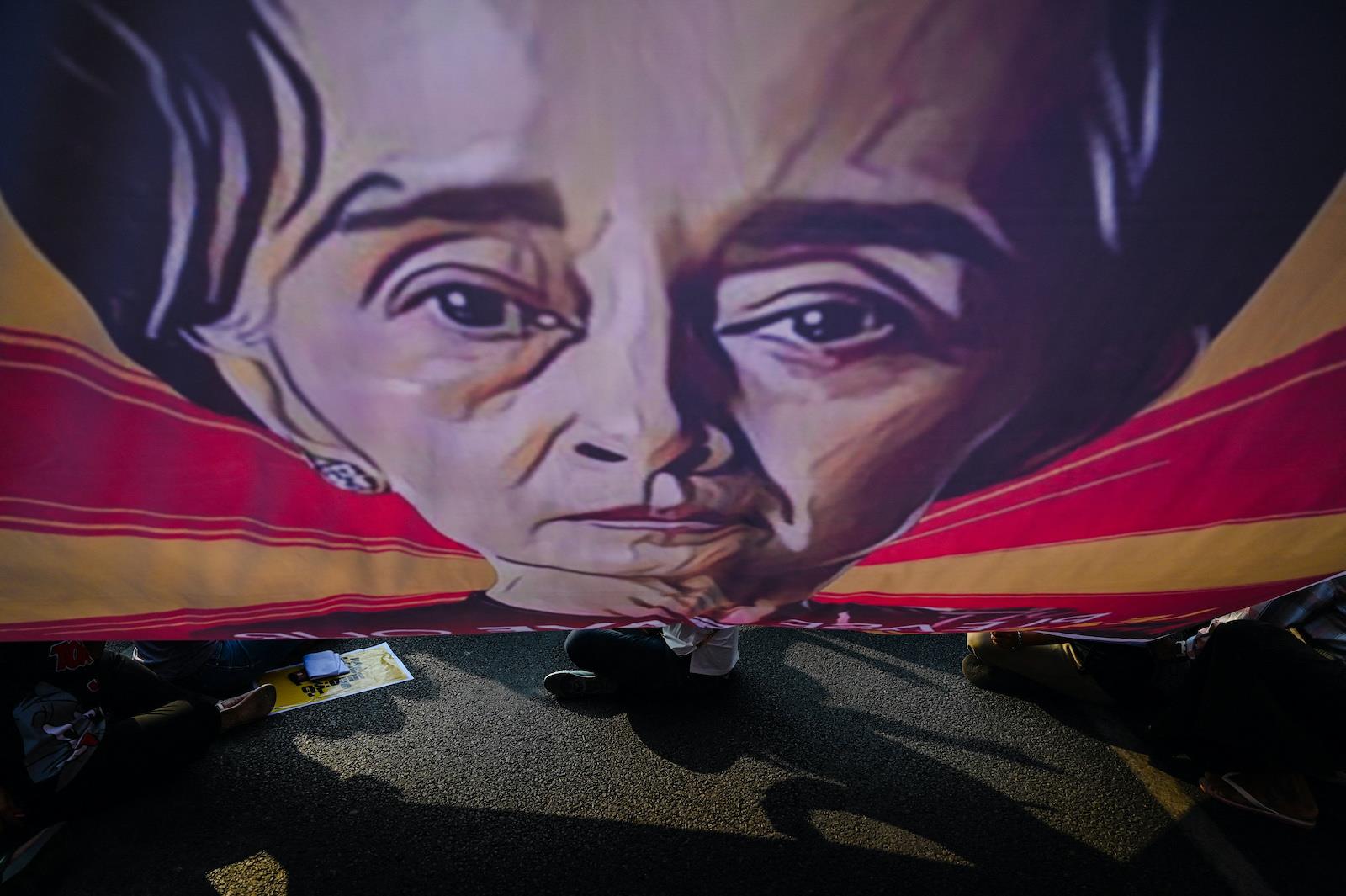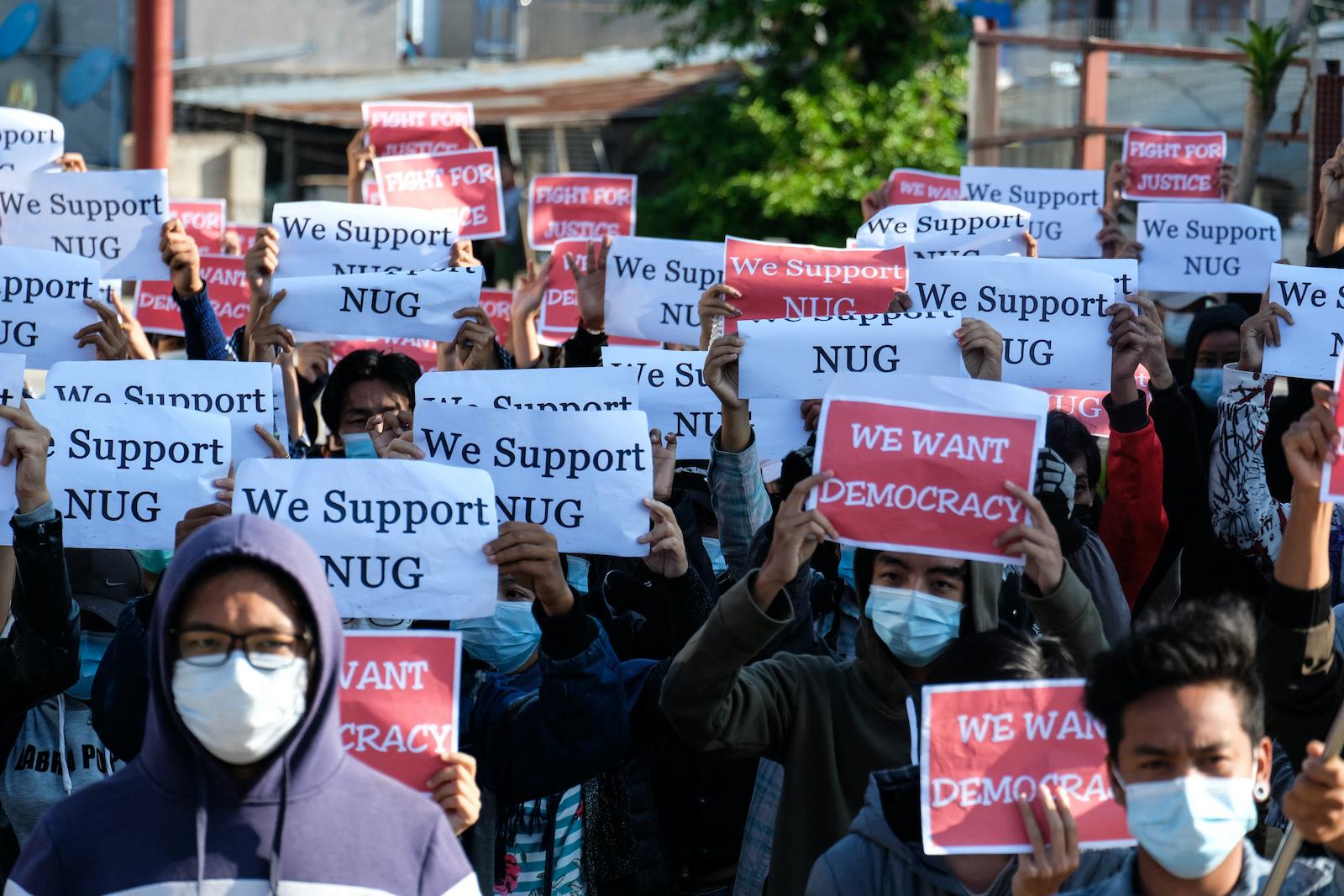(MENAFN- Asia Times) Just over two years since a military coup that unleashed a brutal civil war in Myanmar, many believe that the world has closed its eyes to the conflict.
Tom Andrews, the independent UN special investigator on Myanmar, last month called it the world's“forgotten war.”“A world looks away from Myanmar's descent into horror,” a CNN headline decried on January 31, the eve of the second anniversary of the coup.
It's an increasingly common sentiment but how much merit is there in it?
The claim that foreign politicians and journalists aren't as interested in Myanmar today as they were in the weeks after the coup could also be said of events in Afghanistan, where international attention quickly faded soon after NATO forces cut a retreat in mid-2021, as well as arguably far-worse conflicts in Syria, Yemen and East Africa.
In many ways, the Myanmar crisis falling off newspaper headlines and foreign politicians' briefings, to be replaced by the world's latest catastrophe, ought to have been expected. Myanmar is simply yet another victim of the international community's notorious attention deficit disorder.
Scot Marciel, a former US ambassador to Myanmar, said several factors“contribute significantly to the lack of international media attention on Myanmar”, including the lack of knowledge in the West about the country and the difficulty for the media to enter and operate inside the country.
Other sources, though, point squarely to the war in Ukraine as sapping not just global attention away from Myanmar. It also shows, they say, that the international community could do far more for Myanmar's anti-junta rebels if they had the same interest as they do in the Eastern European conflict.
“For many countries around the world, the Myanmar crisis has been forgotten,” Mark Farmaner, director of Burma Campaign UK, a lobbying group, said.

This photo taken on July 6, 2021 shows members of the Karenni People Defense Force (KPDF) taking part in military training at their camp near Demoso in Kayah state. Photo: AFP / Stringer
“It may be understandable that a crisis on their doorstep means governments pay more attention to Ukraine,” he added,“but it is frustrating that if just a few percent of the action against Russia was applied against the Myanmar military it could help to tip the balance in favor of people resisting the military coup attempt.”
There is some pushback on that sentiment. Sources say analogies to Ukraine are a problem.“The comparisons between Ukraine and Myanmar are inappropriate and, whilst it can be understood why people and activists feel abandoned when they see how much support Ukraine gets, it is also a completely different situation,” a senior foreign diplomat told Asia Times.
Another Western diplomatic source said the narrative that Myanmar is ignored at the expense of Ukraine also creates a worrying idea that the West doesn't care about Asians (“so the root cause is racism, which is wrong,” they said) and might foster a sense amongst Southeast Asians that neither should they care about the situation in Ukraine.
Incidentally, nearly a tenth of Myanmar“elites” said they were not concerned about the war in Ukraine, the second-largest percentage of Southeast Asians who thought that way, after Bruneians, according to a survey published last week by the ISEAS–Yusof Ishak Institute in Singapore.
With Aung San Suu Kyi, Myanmar's decades-long political icon, now in jail, the anti-junta resistance lacks a charismatic, central figure akin to Ukrainian President Volodymyr Zelensky, which is perhaps one reason why the Myanmar crisis gets less attention.
It is also a far more complicated conflict. In Ukraine, the world is presented a black-and-white story of one sovereign state invading another. It also marks the first invasion of a European country since the Second World War, and there are risks that it could descend into a nuclear war, impacting the entire world, or a broader war involving all NATO members.
In Myanmar, however, it is not a clear-cut case of national sovereignty, one reason why some other Southeast Asian governments want to get Myanmar off ASEAN's agenda, believing they have no responsibility to interfere in the internal affairs of another country.

A banner featuring Aung San Suu Kyi is displayed on February 15 as protesters demonstrating against the military coup surround police, who had blocked off the street leading to the headquarters of the National League for Democracy (NLD), in Yangon that day. Photo: AFP / Ye Aung Thu
Instead, the Myanmar crisis is between domestic political actors, as well as a mosaic of different groups, ranging from civilian People's Defence Forces and ethnic militia, with wildly disparate goals and tactics.
“The Myanmar resistance is a disparate coalition of dozens of forces that don't see eye to eye and may well turn on each other when all is said and done,” Gregory Poling, director of the Southeast Asia Program at the Center for Strategic and International Studies, a think-tank, said.
International journalists are“embedded” with the Ukrainian military in a way they cannot be with civilian People's Defense Forces or ethnic militia in Myanmar. The Ukraine war offers a rolling daily news cycle of troop movements, whereas penciling which territory is controlled by the junta and anti-junta forces in Myanmar is more difficult.
The war in Ukraine has also led to global food shortages and rampant inflation; the Myanmar crisis has barely touched the economies of its neighbors.
While an estimated 2,900 people have been killed in Myanmar by junta troops since the coup, according to the Assistance Association for Political Prisoners (Burma) advocacy group, around 7,000 Ukrainian civilians have been killed over the past 12 months, the UN said last month, as well as hundreds of thousands of Ukrainian and Russians troops.
Many foreign governments would contest that they've forgotten about Myanmar. The European Union imposed its fifth round of sanctions in November, and the conflict was the main talking point when European leaders held a special leaders' summit with the ASEAN bloc last December.
Brussels has appointed a special envoy for Myanmar, the EU ambassador to ASEAN, Igor Driesmans. In December, the US Senate included a stripped-down version of the burma act , which ratchets up possible sanctions on the junta, in a piece of military spending authorization legislation.
Washington and several other Western countries imposed yet another round of sanctions on January 31. On December 21, the UN Security Council adopted a resolution denouncing the Myanmar military's rights violations.
International newspapers might also query their apparent indifference to what's happening in Myanmar. Last August the Economist ran a leader headlined“Myanmar's shadow government deserves more help,” referring to the National Unity Government (NUG).

Protesters hold posters in support of the National Unity Government (NUG) during a demonstration against the military coup on 'Global Myanmar Spring Revolution Day' in Taunggyi, Shan state, on May 2, 2021. Photo: AFP / Stringer
The weekly magazine has published a handful of articles on Myanmar since. Since August the New York Times has published 17 articles about Myanmar, according to Asia Times analysis of its website listings.
The American newspaper hasn't yet reported on Myanmar this year, though. The Guardian, a British newspaper, has reported at least 16 articles related to Myanmar since the beginning of this year. Most wire services publish reports daily.
Nonetheless, both sides are valid. The Ukraine war may not be the best analogy and can be misleading in its application. At its worst, it suggests the West's alleged double standards are intentional, rather than due to material differences between the Ukraine war and the Myanmar crisis.
Yet, after years of the West claiming to be fully behind Myanmar's democratic transition (and lauding themselves for doing so), the Burmese can be rightfully angry that those same Western governments appear to have less interest when that democratic effort failed.
It is“entirely fair for the resistance to continue drawing parallels to Ukraine and saying that a fraction of what the international community has provided Kiev would turn the tide in Myanmar,” Poling of the Center for Strategic and International Studies said.
More to the point, the narrative has political value. Myanmar's rebels and their supporters know that by continuing to compare their plight to Ukraine, it garners worldwide attention. Indeed, numerous international newspapers and journals of repute have framed their recent coverage of Myanmar around that narrative.
Even more importantly, it puts Myanmar's rebels in the same league as Ukrainian defenders of being courageous resisters fighting for liberty and makes them part of a wider global struggle for democracy.
Follow David Hutt on Twitter at @davidhuttjourno























Comments
No comment